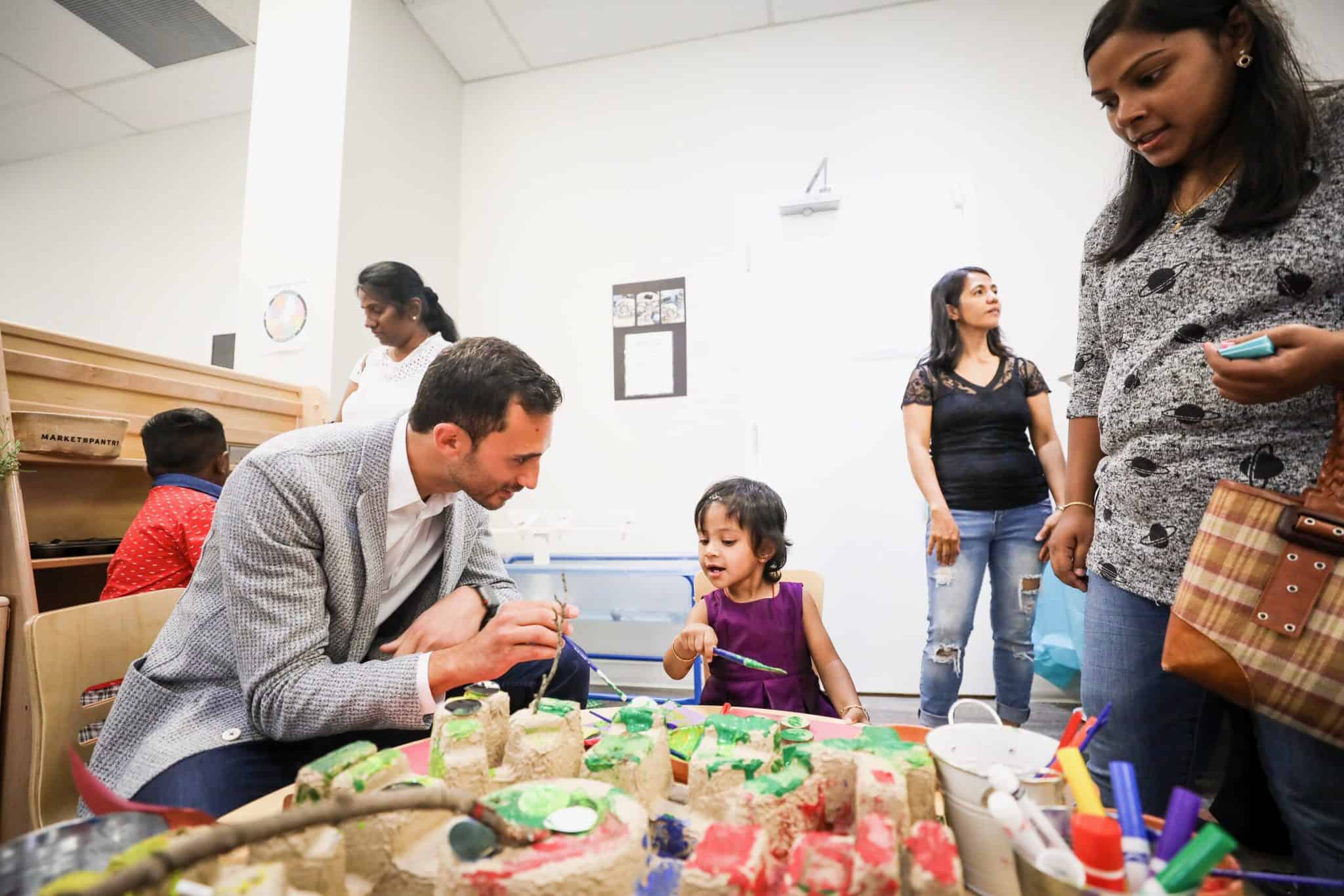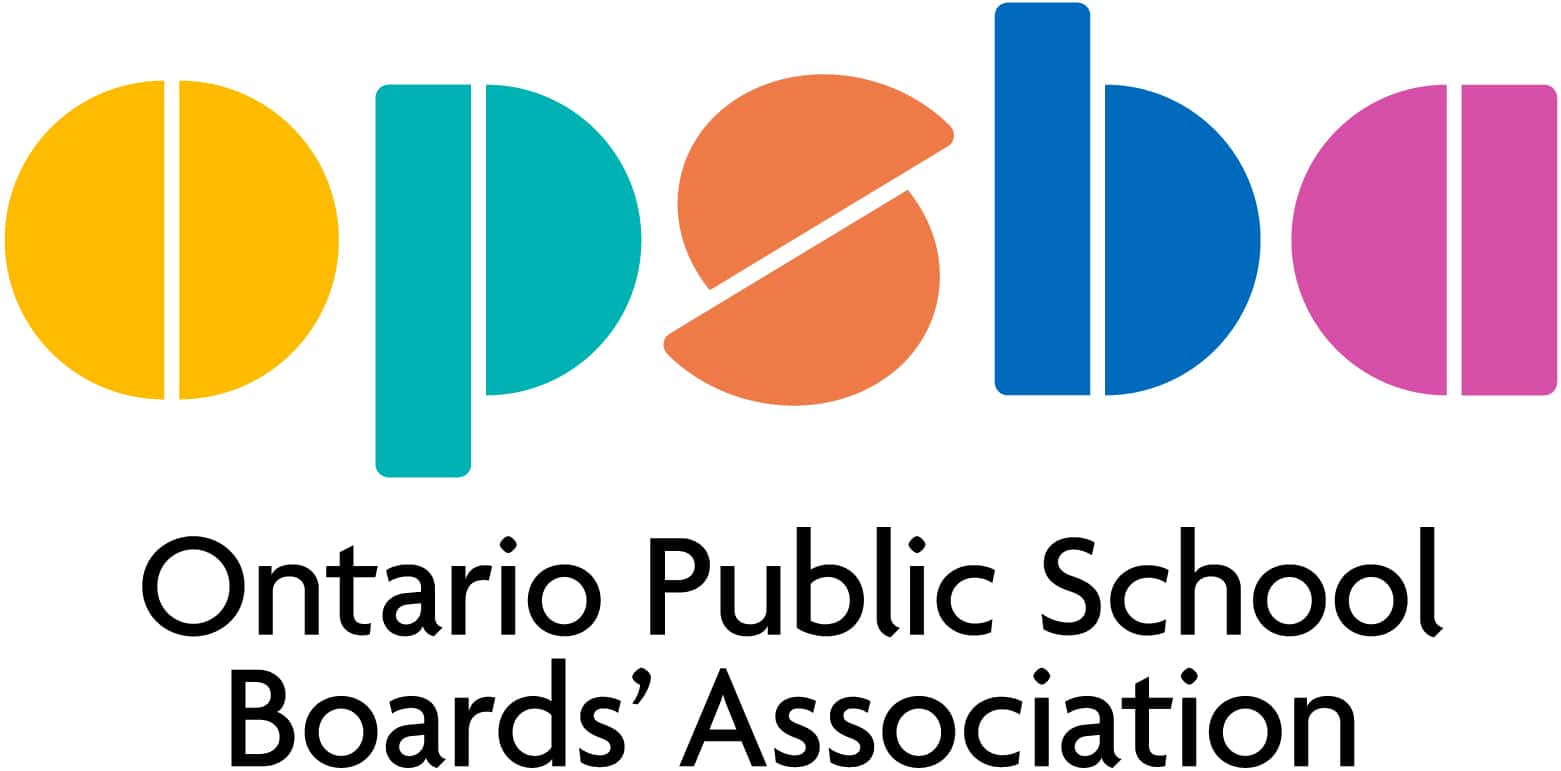 Photo Credit: Ministry of Education |
Interview with Minister of Education Stephen Lecce
By OPSBA Staff
OPSBA congratulates you on your new cabinet position as Minister of Education. What are your top three priorities for this school year?
I am honoured and energized to serve the people of this great province as our Minister of Education.
I firmly believe that every student deserves the opportunity to succeed. Under our reforms, every student will go through their school journey with the confidence that they will achieve their full potential. This is central to any good education system – and Ontario is no exception.
We are already recognized as a global leader in education, with our world-class, publicly funded education system.
Some of the key components of my vision include:
- A strategy to improve Science, Technology, Engineering and Math (STEM) learning, with a renewed focus on financial literacy and skilled trades
- A new digital curriculum platform
- A historic commitment to mental health and special education.
We want to ensure all Ontario’s students, irrespective of ability, have what they need to succeed in school and ultimately get a good-paying job in Ontario’s workforce as productive citizens.
Indigenous Education – OPSBA’s Indigenous Trustees’ Council is focusing on a number of key action areas for the 2019-20 school year including restarting the important work of the Minister’s Advisory Council on FNMI Education, curriculum revisions, and the retention and revitalization of Indigenous languages. Can you articulate your government’s vision for Indigenous Education?
Our government is committed to the academic success and well-being of Indigenous students and ensuring that all students learn about First Nation, Métis and Inuit cultures, contributions, histories and perspectives. As part of this work we are committed to enhancing connections between curriculum and Indigenous peoples’ experiences, perspectives, knowledge and ways of knowing.
That’s why we launched the revised First Nations, Métis, and Inuit studies curriculum for students in grades 9‐12. This is comprised of a suite of ten secondary school courses that focus on Indigenous cultures and offer pathways to post-secondary education.
We have committed to continued engagement with teacher-writers, academics, Elders, Knowledge Keepers, Senators, Residential School Survivors, First Nations, Métis, and Inuit partners, and other education groups to further this process.
We are also reaffirming our commitment to supporting Indigenous student retention and improving graduation rates through continued investment in the Indigenous Graduation Coach Program Pilot. This Program will help close the education gap by increasing the number of Indigenous students who are working towards a high school diploma.
In mid-September, I was in North Bay to announce our Reciprocal Education Approach, also known as REA. As of September 1st, our government has brought in a new approach that will support First Nation students and families by providing parents with more options. REA will reduce barriers for First Nation students living on-reserve who wish to attend a provincially funded school. It will also support First Nation students who live off-reserve and who wish to attend a First Nation-operated school.
There’s more good news: the REA will eliminate a lot of unnecessary red tape. It ensures that First Nations and school boards in Ontario will no longer be required to negotiate the base tuition fee for students who wish to attend a provincially funded school or a First Nation-operated school.
Autism – In some areas of the province, essential clinical services are not available to meet the complex needs of children and youth with autism and special needs. These needs are different than the supports currently provided in an educational setting. How is your Ministry planning to work with the Ministries of Children, Community and Social Services and Health and Long-Term Care to ensure gaps in therapeutic or clinical treatment are provided outside of the school environment?
Our government’s top priority will always be to ensure that every student in Ontario has access to a meaningful education in safe and supportive school environments. I am working collaboratively to better align and integrate services and supports with my colleagues Minister of Children, Community, and Social Services Todd Smith and Minister of Health Christine Elliott.
Under our government, we have announced the highest-ever funding commitment for the needs of youth with ASD, including in the school system. This year alone, we will be investing over $40 million for ASD programming, resources, and supports, which represents the highest-ever amount in my Ministry.
As you know, the Autism Advisory Panel is concluding their review and recommendations to Minister Smith. I look forward to reviewing the report, and continue to ensure every student feels supported, safe, and equipped to succeed in the classroom and beyond.
Capital Funding – OPSBA believes strong and equitable education funding sets the conditions that promote and sustain student achievement and well-being. We also know that many school boards have capital and infrastructure needs that are serious and urgent. How will your government provide consistent and stable funding to ensure schools remain safe for our students and staff?
 Photo Credit: Ministry of Education |
We are taking decisive action to ensure students have safe and modern learning environments that enable their success in the classroom, in life, and in the labour market. That is why our government is investing $13 billion dollars over the next decade to build new schools and improve existing ones for our students. We’re putting students first by investing money where it’s needed most – new schools and renovations mean better learning for our students. Better schools make for better learning, which is why our government is acting to ensure that students across the province have modern learning environments that support their success and well-being.
In addition to new school space construction, the government is providing $1.4 billion for the 2019-20 school year to renovate and renew existing schools. We will continue to work closely with school boards to deliver this funding and ensure the Ontario education system meets the unique needs of their communities and deliver good value for the Ontario taxpayers.
E-Learning – Last March the government announced its New Vision for Education and the intention to “centralize the delivery of all e-learning courses to allow students greater access to programming and educational opportunities no matter where they live in Ontario” and that “secondary students will take a minimum of four e-learning credits” in order to graduate. We have strongly advocated that e-learning is not the most successful learning approach for all students and request the government to not make this a mandatory graduation requirement. How will you ensure all students are supported in finding success with the new model of mandatory e-learning?
Ontario students have been using online learning to earn high school credits towards their diploma since 2004. Over that time, it has become clear that online learning offers a number of significant benefits for students. For example, students will have access to a greater variety of courses, including some they may need for their future life/career plans but which are not available in their school or school board. They could take an online learning course to resolve a timetable conflict, or use the flexibility of ‘anytime, anywhere’ learning to extend their coursework beyond the school day. They will also be able to interact with, and learn from, students from across the province.
These benefits will be further enhanced by the government’s initiative to modernize the delivery of online learning starting in 2020-21. This includes expanding broadband access so that all Ontario students and educators will have access to reliable, fast, secure and affordable internet services at school in all regions of the province.
Technology has become central to most aspects of our daily lives including our work, training, education and how we connect with the world. There is almost no life or career path our students are preparing for that will not involve the use of technology to some degree. Through this initiative we will provide students with flexible learning opportunities using leading-edge technologies, to learn in new and exciting ways and prepare for success in life after high school.
But we know that we can’t achieve these goals alone. The Ministry of Education wants to hear from stakeholders, including students and student leaders, as we develop a world-class online learning system. To help support student success, the Ministry will work closely with school boards who already have established online learning programming to learn from, and build on, promising practices. We will also be looking at evidence from research and other jurisdictions to inform design and implementation options.
Local Democracy – School board trustees are the only democratically elected officials responsible for public education. How will you and your ministry continue to support the role of democratically elected trustees and ensure that local voices continue to be heard at school board tables across Ontario, and at Queen’s Park?
In the first days of my ministry, I made it a priority to reach out to trustee associations and board representatives across the province. I continue to meet regularly with trustees, as I value the local insights and perspectives that trustees bring to the education system.
The ministry supports school board trustees in many ways. This includes, for example:
- Promoting effective governance, establishing accountability standards and supporting the election and appointment of trustees
- Providing funding for professional development, honoraria and other expenses through the Grants for Student Needs (GSN)
- Working with school board associations to ensure that trustees are supported in their role as board members
Private Schools – With groups like the private school lobby group TeachON setting up shop in Ontario recently, there is much concern that public funds will be directed to private education. Will your government provide public dollars for private schools, either directly or through tax credits?
We remain firmly committed to strengthening and defending our publicly funded education system. That is why we have increased investment in education to the highest level in Ontario history. While our government is making historic investments in public education – including in mental health – the government does not provide and has no intention of providing funding for private school education.
| Previous Article | Next Article |

